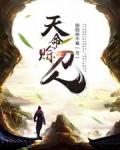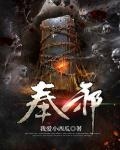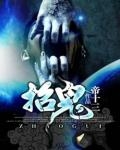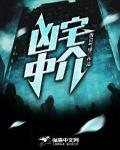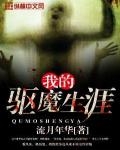Requiem Chapter 17: The Successor of Maoshan (1)
Yin Hun got off work very early today. Just as he was about to go back with Tang Yan, he received a call from Lao Zhao. The meaning was simple: he asked him to come to his house for a meal, no matter what.
"Sit down!" In the room, Old Zhao put down his wine glass and said in a deep voice.
Yin Hun sat down obediently. In such a large place, there were only two of them.
However, Old Zhao's voice was still full of energy: "I called you here right after get off work. If you are unhappy, you can leave immediately. I don't blame you."
Yin Hun smiled bitterly in his heart. He had long been accustomed to the old man's foul mouth.
Seeing that he didn't move, Old Zhao nodded slightly and said, "Okay, since you have no objection, then listen carefully and don't miss a word, because..." His voice suddenly became low and he said, "Because this is the last lesson I will teach you."
Yin Hui had a lot of questions in his mind, but he tried hard not to speak out.
Old Zhao said calmly, "Before class, I have something to say. After this class, it means the end of my generation's transmission to yours, and you will be a formal undertaker. But it also means that your life will no longer be peaceful. Because of responsibility, there are some things you must do, and you will never regret it, so it's not too late to turn back now."
Yin Hui's face flushed red, and he finally couldn't help but blurt out a few words: "This is an insult to me, please take back what you said, Master."
Old Zhao looked at him with some surprise, and sighed, "Don't act on impulse. It seems that getting involved with me is not a good thing now, and it will be even worse in the long run."
Yin Hun did not answer a single word, but proved his inner voice with practical actions. He knelt on the ground slowly and firmly, as if pushing a golden mountain or overturning a jade pillar.
Yin Hun said in a clear voice: "I have been studying with the master for almost a year. We are in essence a teacher and a student, but not in name. Please accept my three bows and give me a proper name." Without waiting for Old Zhao to answer, he kowtowed three times respectfully and then fell to the ground, unable to get up.
Old Zhao looked at this disciple who had a similar fate with him with surprise , and sighed, "Why bother?"
"Do you know why I don't want to take you as my apprentice?"
Yin Hui shook his head slightly, and he said in a deep voice: "Because I'm afraid. I'm afraid that I will bring you an unhappy life. In our line of work, few people can get away with it and die of old age."
Yin Hui suddenly realized: "No wonder..."
"What's the wonder?" asked Old Zhao.
"Nothing." Yin Hui said softly.
"Do you think that this is the reason why I didn't teach you all the Taoist skills?" Old Zhao said with a smile.
"I dare not." Yin Hun did not deny it.
"You underestimate me, Zhao Deshui." Old Zhao shook his head and said, "A teacher is here to teach and resolve doubts. I am not the least bit confused with you in terms of Taoism. On the contrary, I can see your progress clearly. Given time, you will definitely surpass me by far."
"Indeed, Taoism is about the use of instruments, spells, and natural forces." Old Zhao said in a deep voice, "But Taoism itself is just a form. It's nothing more than the 71 grids of the Nine Palaces and Eight Diagrams, and the 36 fortune sticks of Yin Yang and Five Elements. It's just drawing talismans and chanting spells. With your intelligence, it only takes a few months to learn all this, but what's the use of just knowing this?"
"Will you become a qualified undertaker just by learning these?" Old Zhao said in a deep voice: "Impossible! Because these are originally some red tape and unruly things. If you want to master them, you have to overturn them, overturn them all!"
"What?" Yin Hun was shocked.
Old Zhao drank a glass of wine, his face seemed to radiate some kind of light, and every word he said struck Yin Hun's heart: "Water, fire, metal, and wood are called the Four Symbols. The Four Symbols are the rise and fall of yin and yang, and yin and yang are the ups and downs of the central energy. If you name them separately, they are called the Four Symbols, but if you put them together, they are nothing but yin and yang. If you put them separately, they are called yin and yang, but if you put them together, they are nothing but the changes of the central energy!"
“By analogy, if you want to achieve great success, you only need to master the Zhoutian Qi.” Old Zhao said in a deep voice.
"Master, how can I master it?" Yin Hun asked respectfully. He knew that this was the moment for a learned man to pass on the valuable experience he had gained after decades of painstaking research.
I just heard Old Zhao slowly, word by word, saying, "The theory of the Five Elements is that there is both generation and restraint. Wood generates fire, fire generates earth, earth generates metal, metal generates water, water generates wood, wood restrains earth, earth restrains water, water restrains fire, fire restrains metal, and metal restrains wood. Their generation and restraint are all based on qi, not substance. If it is substance, there will be no generation and restraint."
"The opposite is to control the excess. Wood is dispersing, so if it is restrained by metal, the wood will not be too dispersing; fire is blazing, so if it is suppressed by water, the fire will not be too blazing; earth is moist, so if it is loosened by wood, the earth will not be too wet; metal is contracting, so if it is warmed by fire, the metal will not be too contracted; water is moistening, so if it is infiltrated by earth, the water will not be too moist. These are all the wonders of the natural transformation of qi." After he finished speaking, he let out a long sigh and looked at Yin Hun and said, "Now you understand why I asked you to read and study the previous things first, right?"
"Basics." Yin Hui said softly, "Let me lay a solid foundation first, so I can apply what I have learned to other situations."
"That's right, Qi is the root, and the five elements are the body. The root is the connotation of the body, and the body is the manifestation of the root. Only when you really reach this step can you achieve something!"
"I will now teach you the real art of burial!" Then, Old Zhao started from the basics and explained to Yin Hun in detail the methods, techniques and taboos of applying Taoist magic.
Old Zhao told Yin Hui that in the old society their business was called burial business, and body makeup was only a small part of the burial business.
The ancient Chinese believed that "keeping healthy is not a big deal, but sending someone to death is a big deal." Therefore, the ancients attached great importance to funerals.
In ancient times, funeral ceremonies mainly included activities such as obituary, recall, small burial, large burial, wearing mourning clothes, condolences, funeral procession, and mourning clothes. It would last for three years and the rituals were very complicated.
The ancient Chinese regarded the funeral of their relatives, especially their parents, as a matter of great importance and formed a strict funeral system very early on.
The funeral system before the Shang Dynasty is difficult to verify, but the funeral system of the Zhou Dynasty is preserved in the Confucian classic "Three Rites", which mainly includes the selection of tombs (burial system), the holding of funerals (funeral system), and mourning and memorial services (mourning clothing system). Each aspect is divided into different levels, and the procedures are very complicated, with as many as fifty or sixty items, which is absolutely red tape. According to the "Book of Rites": In ancient times, the dying person must live in the main room. When dying, family members stay by the bed and put very light silk cotton on the mouth and nose of the dying person to check whether he is still breathing, and "a man is not dead in the hands of a woman, and a woman is not dead in the hands of a man."
After a person dies, the "undertaker" holds the clothes of the deceased, faces the north where the netherworld is, and calls out the name of the deceased in a long voice. After repeating this many times, another person takes over the clothes and slowly puts them on the deceased. The Book of Rites explains: "Restoration is the way to show love to the fullest." This ritual represents the last effort to save the life of the deceased.
After summoning the soul, the deceased is placed on the bed under the south window of the main room, and the mouth is stretched open with a corner stick so that the deceased can swallow food later. The feet of the deceased are fixed with a swallow table so that the deceased can wear shoes later. The body is covered with a special quilt. Wine and food are also set on the east side of the body for the ghost to drink, which was commonly known as Daotoufan in the Ming and Qing dynasties.
A pit was dug under the west wall in front of the hall as a stove, and rice washing water was burned to cleanse the body of the deceased, and the hair and nails of the deceased were cut, which represented cleanliness and returning to the origin.
Later, after evolution through dynasties, people gradually abandoned many cumbersome details and retained the main rituals.
Generally, when a person is about to die, the undertaker or relatives will shave the patient's head, comb his hair, and wash it, making sure it is clean. Then he will put on the shroud and wait for death, indicating that he will not lose his clothes.
The undertaker believes that after death, the deceased will report to the underworld, so they put some silver in the mouth, saying that the deceased cannot return empty-handed, and must give it to the guards and guards in front of the Naihe Bridge and the gate of the King of Hell to facilitate smooth passage. At the same time, they also bring some silver for the deceased's ancestors.
At this time, the undertaker has cleared the furniture in the main room or the upper room, and placed the deceased in the main room with his head facing the door (sometimes with his head and feet against the wall). This is called "stopping". After placing the body, they also need to prepare a mixture of plant ash and bran, scatter them from the place where the deceased was placed while burning paper, and call out the name of the deceased or a title for the deceased, so that the ghost will follow to the outside of the gate, which is called "leading the soul on the road".

